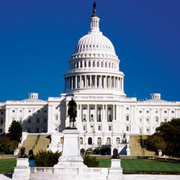Congress Urged to Repeal Affordable Care Act’s Cadillac Tax

- The Affordable Care Act’s (ACA) “Cadillac Tax” – applying to employers offering healthcare plans that are more than double the average contribution – is a 40 percent non-deductible tax beginning in 2018 on the cost of employer-sponsored health coverage that exceeds certain thresholds where a sharing of employee costs is encouraged. As EHRIntelligence.com confirms, the average employer contribution to healthcare was recently reported as topping $4,200 for individuals and $9,800 for families. The Cadillac Tax is planned to help cover the $940 billion cost of healthcare reform.

The Cadillac Tax has been a trending topic on RevCycleIntelligence.com. As Bill Melville, Market Analyst for Decision Resources Group explained in a personal interview, “Premiums are going to be in the spotlight because this is the first year they’re being calculated in full-year claims. [The Cadillac Tax] is a big concern for union-sponsored health plans where something will have to change, perhaps within this or the next administration. It could have a big impact on employers on both large and small as we go forward.”
As RevCycleIntelligence.com additionally reported, one in three employers may be affected by the tax regarding compliance issues. Many employers are notably transitioning away from preferred provider organizations and into the direction of high-deductible plans to avoid penalizations from the Cadillac tax under the ACA.
Will the Cadillac Tax lead to serious consequences?
According to the Alliance to Fight the 40 (Alliance), the Cadillac Tax will lead to dire financial outcomes. In a recent letter addressed to the House of Representatives, the Alliance states, “Congress’ original intent was to target only a small number of ‘overly rich’ plans. However, nonpartisan analyses reveal that it will hit modest health plans that are expensive simply because they are offered in high-cost areas; or because they cover large numbers of people whose health costs are typically higher than average -- women, older and disabled workers, and families experiencing catastrophic health events.”
The Alliance’s letter urges House members to unite with those that have co-sponsored bills to repeal the tax, such as Congressman Frank Guinta (H.R. 879) and Congressman Joe Courtney (H.R. 2050) and join the ongoing effort to pursue a matching bi-partisan effort.
“Illogically, the cost of benefit plan features designed to promote better health and reduce costs such as on-site clinics, wellness programs, employee assistance plans, flexible spending accounts, health reimbursement arrangements, and both employer and employee pre-tax contributions to health savings accounts are included when determining if the tax thresholds are crossed,” says the letter. “Even the cost of preventive benefits such as cancer screenings and immunizations is included, despite the fact that the ACA requires such benefits to be provided with no employee cost-sharing.”
Additionally states the letter, since healthcare costs surpass the growth of tax-triggering thresholds, the tax will apply to more and more modest plans annuals. “The thresholds are tied to the Consumer Price Index which the Congressional Budget Office (CBO) estimates will increase, on average, 2.4 percent annually over the next decade. By contrast, the Centers for Medicare and Medicaid Services expect private health care spending to rise, on average, 5.8 percent each year,” maintains the Alliance.
“Consequently, the tax will catch more plans, and more of the benefits offered, simply because health costs outpace general inflation. And, eventually, plans will face a situation — either because they cover individuals with high health expenses, or operate in high-cost areas of the country — where even the legally-required 60 percent minimum value plan will exceed the cost threshold,” the Alliance adds.
The letter references collected information from around the healthcare industry, such as the following highlights about the possible impact upon health benefits:
- The actuarial and benefits consulting firm Aon Hewitt reported that 33% of employers surveyed are increasing deductibles and other cost-sharing right now, in 2015, to avoid being on a trajectory to trigger the tax when it goes into effect in 2018. But fully 40% of employers expect at least one plan to unavoidably hit the tax threshold that year regardless.
- A survey conducted by the National Business Group on Health found that 42% of employers said they will increase employee cost-sharing, and 37% said they will reduce spousal subsidies or implement a surcharge for covering them to minimize the impact of the excise tax.
- A survey of 700 employers by Mercer in 2015 found that anticipation of the 40% tax is already leading many employers to consider excluding employees' spouses from their health policies or imposing a surcharge for including them. The survey found that the tax has consistently been the primary concern of employers since passage of the Affordable Care Act.
The repeal of the tax is directly associated with an estimated loss of revenue, the letter adds, referring to the tax as “highly inequitable and arbitrary.” “The stated goal of health reform was to build upon employer-based coverage and lower costs. This tax will do neither. Instead, it will erode an important source of quality coverage and compel a shift of costs to workers – something neither employers, nor employees want to see happen,” the Alliance concludes, additionally maintaining that if Congress waits any longer, it will simply be too late.
